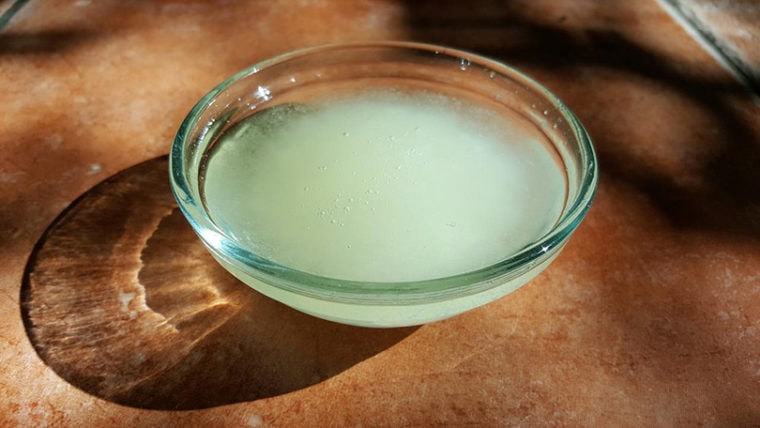
Coconut oil was once an obscure and hard-to-come-by product. Now it’s in everything from lotion to toothpaste and coffee creamer. Many people swear by coconut oil’s many uses and benefits, and that popularity has spread to the pet care industry.
Proponents of coconut oil for cats claim it helps with certain skin conditions, hairballs, and digestive health. Is coconut oil right for your cat? Learn more about coconut oil’s uses, its advantages and disadvantages, and when to consult your vet.
How Does It Work?
There isn’t a lot of published research specifically about cats and coconut oil. But we do know how coconut oil benefits humans. And we also have anecdotal evidence from pet owners who have given their cats coconut oil and experienced positive results. Coconut oil could benefit your cat’s skin, aid digestive health, and help reduce hairballs but more research is needed.

Skin
The fatty acids found in coconut oil have anti-bacterial and anti-fungal properties. Studies have shown that lauric acid and capric acid can kill off or block the growth of harmful microbial organisms. Applying coconut oil to your cat’s skin may alleviate rashes and irritation. Coconut oil is also a natural lubricant and can help moisturize dry skin.
Digestive Health
The same anti-bacterial and anti-fungal properties that make coconut oil great for your cat’s skin can also benefit their digestive tract. If you want to see if your cat will eat coconut oil but don’t want to invest a lot of money, you can buy canned cat food that contains coconut oil.
Hairballs
The way coconut oil can help with hairballs is two-fold. Coconut oil can make your cat’s coat healthier, reducing the amount of hair they shed. Less shed hair can mean fewer hairballs. Coconut oil can also act as a mild laxative, making hairballs easier for your cat to pass in feces.
Giving your cat coconut oil isn’t a replacement for regular grooming. But coconut oil is a natural alternative for hairball remedies containing petroleum jelly and glycerin.

What Are the Types of Coconut Oil for Cats?
You can buy pure coconut oil in solid form to apply to your cat’s skin or add to their food. Cat treats containing coconut oil are also a convenient option.
Any coconut oil product you use on your cat should be pet-friendly and from a reputable brand. Avoid coconut oil products formulated for humans that contain additives like fragrances or other ingredients. These products may not be safe for your cat.
Where Is It Used?
How you use coconut oil for your cat depends on what type of ailment you are trying to alleviate or prevent. You can apply coconut oil directly to your cat’s skin if they have a rash or dry, flaky skin. If you apply coconut topically, make sure you use a safe product for your cat to ingest. They will most likely lick the area when they groom themselves. You can also feed your cat coconut oil to treat hairballs and keep their gut healthy.
Advantages of Coconut Oil for Cats
Proponents of coconut oil for cats claim it is a natural way to alleviate skin irritation. The fatty acids found in coconut oil can treat bacterial and fungal infections.
Other pet owners find that coconut oil can help their cats with hairballs. Some owners prefer coconut oil because they want to avoid hairball treatments containing petroleum jelly or glycerin. Coconut oil appeals to some cat owners because it is easy to buy and seen as a natural treatment.

Disadvantages of Coconut Oil for Cats
Any over-the-counter remedy has its drawbacks, and coconut oil is no exception.
Cat owners should be aware that coconut oil is a high-calorie food. There are 40 calories in a teaspoon of coconut oil. That may not sound like much to us, but that amount adds up quickly for cats. As a point of reference, a healthy, 10-pound spayed or neutered adult cat must eat approximately 260 calories per day. You may need to slightly reduce the amount of food or treats when you give your cat coconut oil.
Coconut oil is high in saturated fats, so it may not be suitable for cats with pancreatitis. Consult your vet before giving your cat coconut oil if they have any chronic health conditions.
Coconut oil is one of the ASPCA’s People Foods to Avoid Feeding Your Pets, but some context is needed. The organization states, “When ingested in small amounts, coconut and coconut-based products are not likely to cause serious harm to your pet.” But some cats could experience an upset stomach and diarrhea after eating coconut oil. Always follow the dosage instructions on any coconut oil product you give your cat. (Note: Coconut water should never be given to a cat due to its high potassium content.)
There are also environmental concerns around coconut oil production which center around deforestation and biodiversity.
Frequently Asked Questions (FAQs)
What Are Alternatives to Coconut Oil for Cats?
There are alternatives to coconut oil, depending on what your desired outcome is. You may need to switch to a hairball management cat food formula if hairballs are a persistent problem despite regular brushing. An antiseptic, anti-fungal medicated cat shampoo may clear up certain skin conditions. Essential fatty acid supplements with Omega oils have much more science currently to back up their use in skin problems.
How Much Coconut Oil Should I Feed My Cat?
If your cat hasn’t had coconut oil before, you’ll want to start slowly to see if it upsets their stomach. You should start with ⅛ teaspoon per day if you use pure coconut oil. You can then increase that up to ¼ or ½ teaspoon as needed.
Follow the manufacturer’s directions for treats or other edibles containing coconut oil. When applying coconut oil topically, use it sparingly. Your cat may lick any excess oil off when grooming.

How Do I Store Coconut Oil for My Cat?
You should store coconut oil in its original container in a cool, dark location. Your pantry or kitchen cupboard is fine as long as it’s not right next to your stove. It is safe to keep coconut oil at room temperature long-term in most climates. If your home gets hot, you can place coconut oil in the refrigerator. It will harden when refrigerated but is still safe to use.
Never feed your cat coconut oil that has gone bad or is past its expiration date. Coconut oil that is safe to eat is pale white. Watch for any dark spots, yellowing, mold spots, and curdled texture. Bad coconut oil may have a sour or bitter smell to it.
You can help your coconut oil last longer by using a clean utensil every time you scoop some out of the container. Dirty utensils will contaminate the oil and shorten its shelf life.
Conclusion
You should talk to your vet before you feed your cat coconut oil or apply coconut oil to their body. Your cat may have an underlying condition that would be better treated with prescription medication. Don’t use coconut oil products formulated for humans, as they may have additional ingredients that are harmful to your pet. Choose products that are made especially for cats and manufactured by a reputable company. Your cat may experience an upset stomach or diarrhea if they aren’t used to coconut oil.
Featured Image Credit: SchaOn, Pixabay







